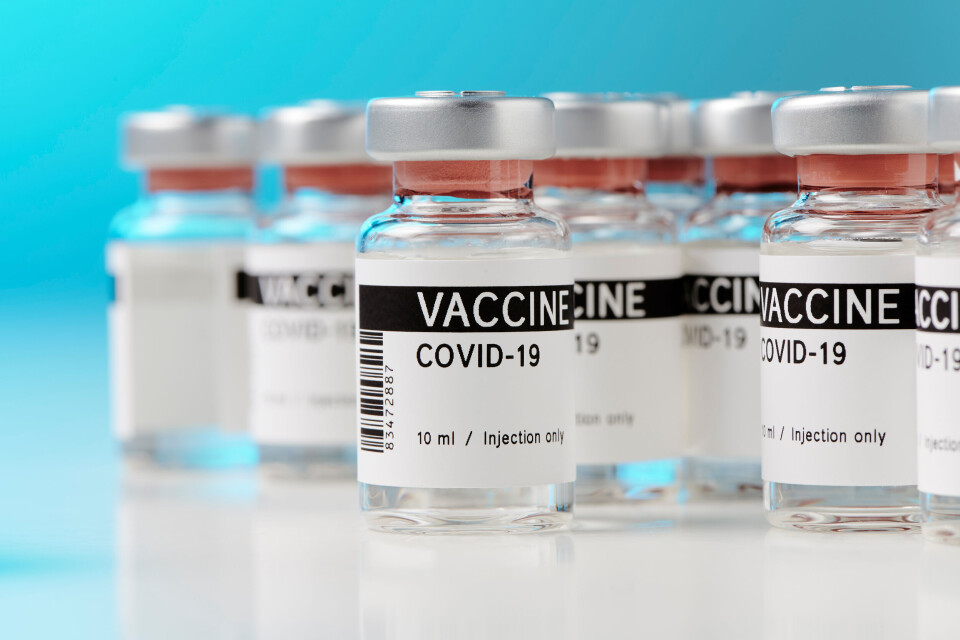-
My health journey: I had emergency op for appendix tumour in France
Vivion Gibbs, 73, who moved to Brittany from the UK in 2011, describes how lower back pain quickly escalated into something far more serious
-
More bank branches in France are closing
Some 3% of branches are shutting every year, reports banking union
-
French passport beats US and UK for global access
Rankings measure visa-free access to foreign countries
Covid booster jabs not necessary says WHO: What is France's policy?
As France, the UK, US and other countries plan to begin giving third doses, the World Health Organisation says doing so is ‘morally and ethically’ unnecessary

The World Health Organisation (WHO) has said that Covid booster shots are not necessary, as countries including France, the UK and the US prepare to start administering third doses.
WHO chief scientist Soumya Swaminathan said in a press conference: “We think clearly that the current data does not indicate that booster doses are necessary.
“We should wait for science to tell us when booster doses are necessary and for which groups of people,” she said.
She added that from a “moral and ethical” point of view it was not good that richer countries were starting to give third doses “when the rest of the world is still waiting for first doses”.
France plans to begin a booster dose campaign for five million eligible people in September.
These include people in retirement homes and long-stay medical care units, people aged over 80 living independently and people with immunodeficiencies that make them vulnerable to serious forms of Covid-19.
Read more: 5 million eligible for Covid booster in France - how do they get it?
What does the science say?
A study published in June in the journal Nature found that immunity from RNA messenger vaccines (such as Moderna and Pfizer) was “robust” and “persistent”, but diminished slightly over time.
The efficacy of the Pfizer vaccine fell from 96% to 84% over four months, increasing the risk of reinfection with the virus according to a study published at the end of July, which has not yet been peer-reviewed.
It is thought that the loss of immunity could be higher in older people who have weaker immune systems.
Covid-19 variants that are more transmissible could also play a role in making vaccine immunity less effective.
A study from Oxford University published in August found that this was the case for the Pfizer and AstraZeneca vaccines, in light of the Delta variant.
The Pfizer vaccine prevented 85% of infections two weeks after the second dose, but dropped to 75% after 90 days. AstraZeneca prevented 68% of all Covid cases two weeks after the second shot, dropping to 61% after 90 days.
Which other countries plan to give booster shots?
Booster dose campaigns are planned in the US, the UK and Germany from September. More than one million booster doses have already been given in Israel, where a campaign began on August 19.
In the US, booster doses will be made available to the entire population eight months after receiving a second dose. Vulnerable populations such as the elderly and healthcare workers will be the first to become eligible, as they were the first to be vaccinated during the initial campaign.
In Israel people over 50 are currently eligible for booster doses. In the UK 32million aged over 50 or considered vulnerable will be eligible.
It is expected that some 100million third shots will be given in the US alone in the coming months. US President Joe Biden has also pledged to send “more than 200million” doses overseas. He said: “We can take care of Americans and help the world at the same time.”
However, the worldwide initiative to allow equitable access to vaccines, Covax, has so far struggled due to lack of doses.
Covax was launched in order to help 92 poorer countries access Covid vaccines, but of the 4billion doses injected globally, 80% have so far gone to high or middle-income countries.
Related stories
France hits 40 million goal for full vaccinations against Covid-19
3,500 Covid jabs destroyed in vaccination centre attack near Toulouse
























